Vinegar works wonders—just not everywhere. Our experts say these are things you should never clean with vinegar.
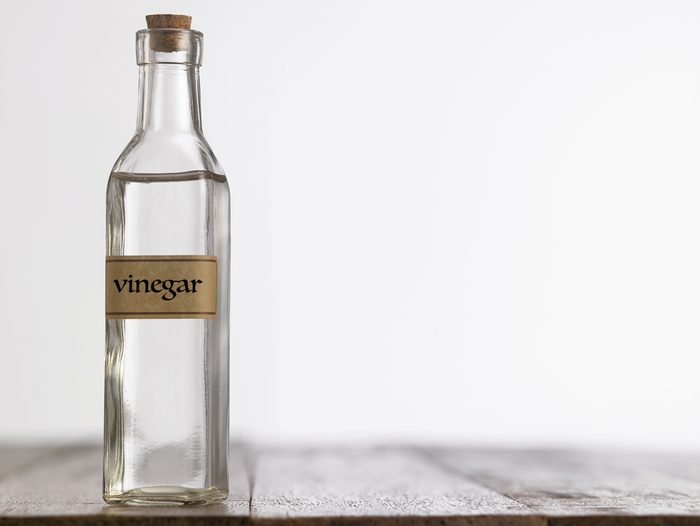
8 Things You Should Never Clean with Vinegar

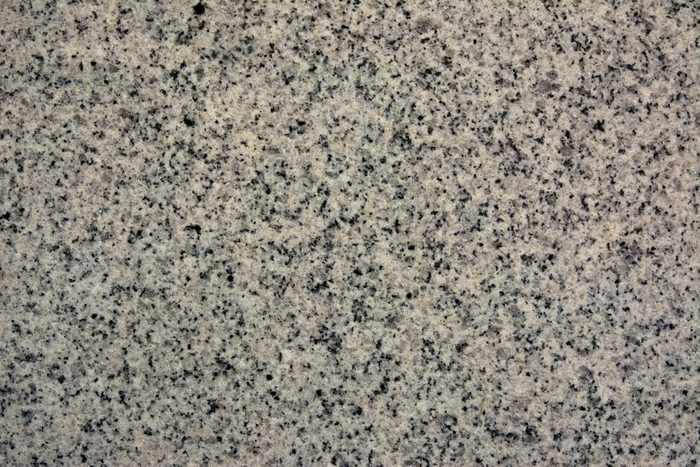
Granite and marble countertops
Using vinegar to clean your granite or marble countertops can ruin their smooth, shiny surface. “The acidic cleaners may etch the granite top and leave a dull or discolored spot behind,” says Cameron. “Instead, a safer cleaning solution is to use a mixture made of five drops of dish soap, seven to 10 drops of rubbing alcohol and a cup of water.”
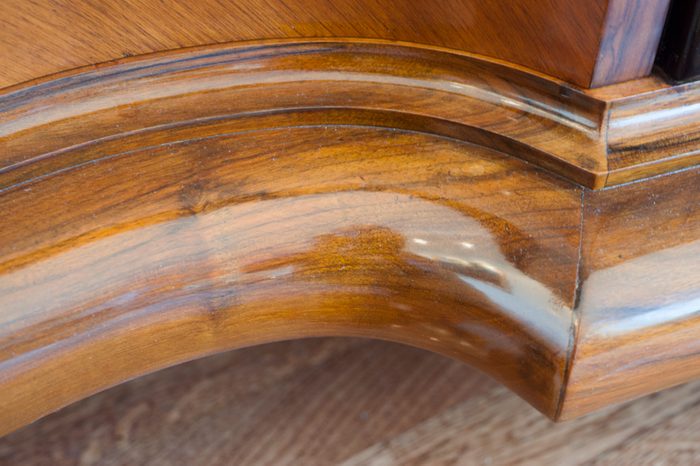
Waxed furniture
Skip the vinegar-based cleanser when cleaning waxed furniture—it’ll dissolve the wax and leave the surface looking dull, says Cameron. Instead, use a wax cleaning solvent to maintain the surface of your furniture. It’ll help preserve both the shine and the integrity of the finish in the long run.
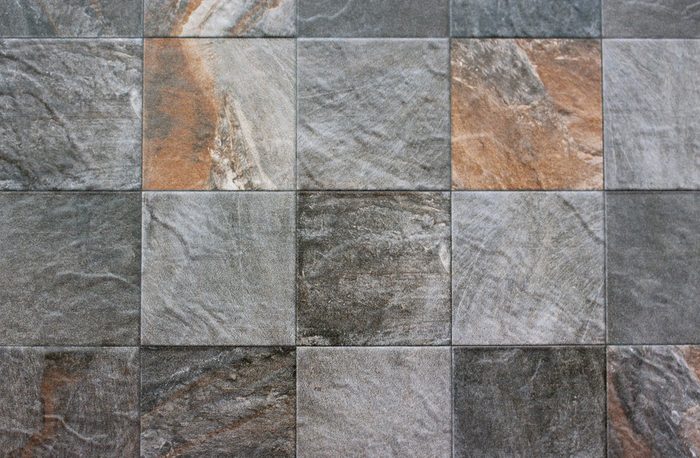
Stone floor tiles
Do you have natural stone tiles anywhere in your house? Pick your products wisely! This is one of those things you should never clean with vinegar. And while we’re covering cleaning no-nos, avoid using lemon and ammonia too. The acidity in all of these products etches and dulls the stone, says Ledoux. Repairing the damage usually includes an expensive repolishing process.
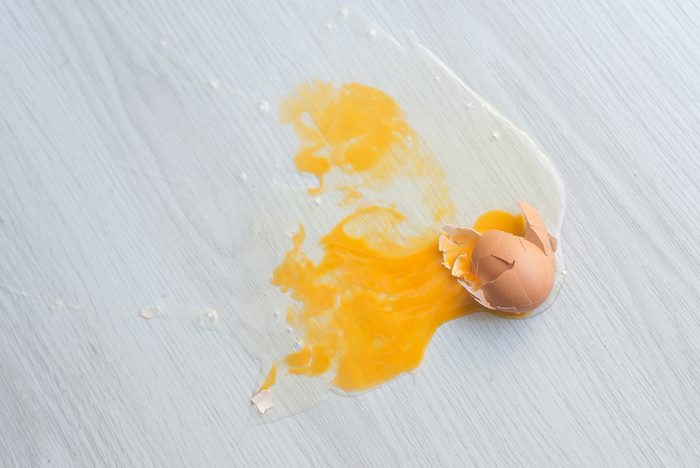
Egg spills
“Cleaning egg messes with vinegar solution will cause the protein enzymes in the egg to coagulate and will make the stains even more impossible to clean up,” says Cameron. So if you drop an egg on the floor while cooking (been there), it’s better to wipe it up with something else. She suggests using some soap and warm water for a much quicker and efficient cleanup.
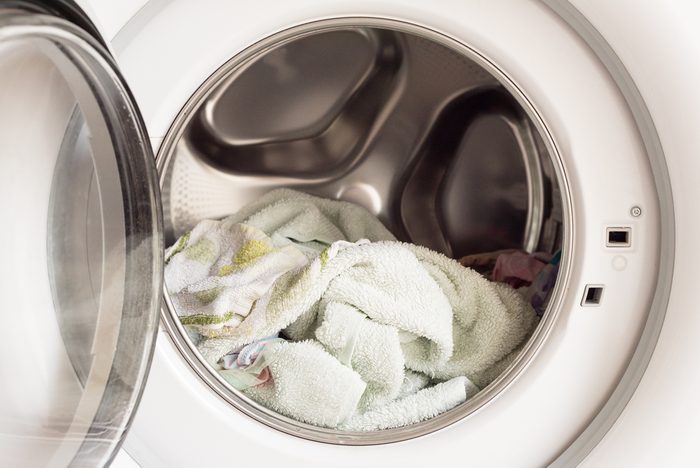
Clothing when using bleach
Vinegar works wonders in the washer to get stinky smells out of clothes and leave them feeling fresh. But don’t even think about tossing in bleach at the same time. According to the University of Rochester Medical Center, mixing the two results in chlorine fumes—a toxic gas that’s dangerous for you and disastrous for your laundry.

Hardwood floors
Whether or not your hardwood floors are one of the things you should never clean with vinegar depends on the finish of your flooring. Using vinegar on some hardwood floors will damage the finish. While it’s best to use a cleaner specifically designed for cleaning finished hardwood floors, Cameron says that if you heavily dilute the vinegar with water or other cleaning ingredients, your floors should be fine.
However, if you don’t want to take that risk, a safer alternative is to try an old-school cleaning hack: a DIY solution that is a mixture of liquid detergent and water.
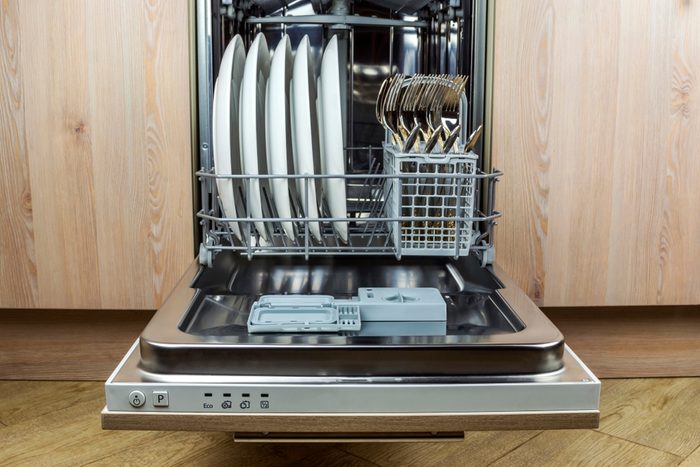
Dishwasher
Adding vinegar to your dishwasher can make your dishes come out looking sparkling clean, but the acidity can damage the rubber parts of the appliance. Vinegar is safe to use on machines made with natural rubber seals and parts constructed from ethylene-propylene, silicone, fluorocarbon, virgin Teflon and butyl synthetic rubber seals. But you’ll need to avoid vinegar on dishwashers with seals made from polyacrylate, fluorosilicone and Buna-N, as it can cause failure. Your best bet: Look to your dishwasher’s user manual for guidance.
Typically, the water used during the wash cycle will dilute the vinegar so much that it won’t cause any damage, but just make sure you aren’t letting it sit in your machine for extended periods of time.
Instead of vinegar, opt for a rinse aid to get your dishes clean. It will prolong the life of the hoses and seals in your dishwasher.
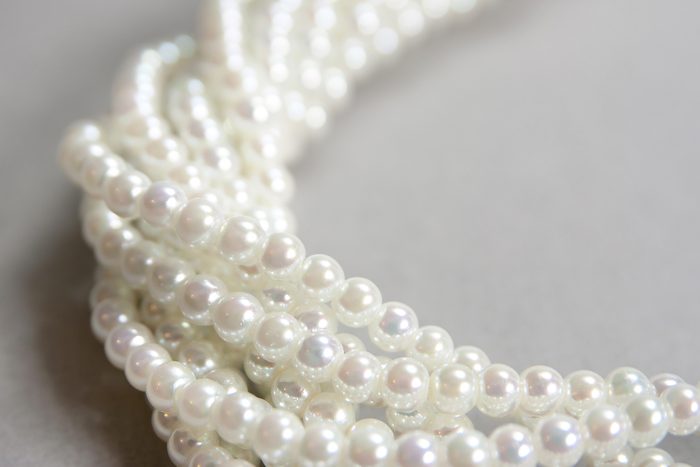
Pearls
Pearls are made up of marble, limestone and calcium carbonate. According to Britannica, when pearls are exposed to vinegar, the calcium carbonate in the pearl will react with the acid in the vinegar, causing it to dissolve.
While you’d need a heavy concentration to fully dissolve your pearls, a few swipes of vinegar can definitely cause damage. To keep your pearl jewelry shining, Cameron recommends cleaning them with a soft cloth dipped in a solution of lukewarm water and mild dish soap instead.
About the experts
|
Why trust us
At Reader’s Digest, we’re committed to producing high-quality content by writers with expertise and experience in their field in consultation with relevant, qualified experts. We rely on reputable primary sources, including government and professional organizations and academic institutions as well as our writers’ personal experiences where appropriate. We verify all facts and data, back them with credible sourcing and revisit them over time to ensure they remain accurate and up to date. Read more about our team, our contributors and our editorial policies.
Sources:
- Lily Cameron, cleaning and organizing professional at Fantastic Service
- Elena Ledoux, co-founder of Superb Maids
- Granite Gold: “Why Granite Shouldn’t Be Cleaned with Vinegar”
- University of Rochester Medical Center: “Do not mix these cleaning products”
- Hunker: “Can You Mix Clorox Bleach With Vinegar for a Cleaning Solution?”
- Bona: “Don’t Use Water and Vinegar to Clean Hardwood Floors”
- Hunker: “Will Vinegar Ruin the Rubber Seals on Appliances?”
- CNET: “You Really Shouldn’t Use Vinegar to Clean Your Dishwasher”
- Britannica: “One Good Fact”




















